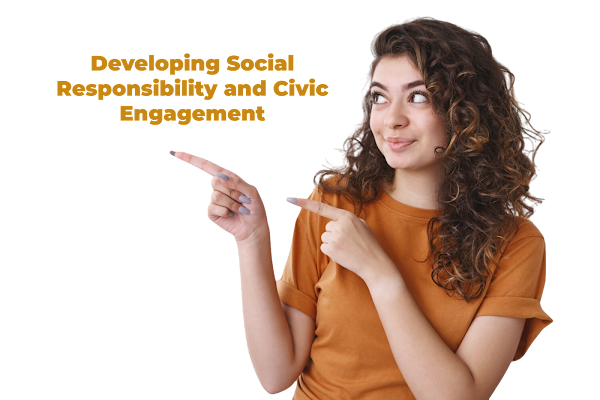Why Service Learning Matters: Developing Social Responsibility and Civic Engagement
Service learning is a powerful educational tool that combines community service with academic instruction, providing students with hands-on opportunities to apply classroom concepts to real-life situations.
Through service learning, students can develop a sense of social responsibility and civic engagement, while also gaining practical skills and experience.
In this article, we will explore why service learning matters and how it can benefit students, communities, and society as a whole.
What is Service Learning?
Service learning is a form of experiential education that involves students in meaningful community service projects as part of their academic coursework.
Unlike traditional volunteer work, service learning integrates service activities with classroom instruction, enabling students to apply what they are learning in the classroom to real-life situations.
Service learning typically involves three key elements:
- Meaningful service: Service activities must address real community needs and benefit others, rather than just being busywork.
- Academic rigor: Service activities are integrated into the academic curriculum, and students are required to reflect on their service experiences and relate them to their academic learning objectives.
- Personal and social growth: Service learning provides opportunities for students to develop skills such as leadership, teamwork, communication, and critical thinking, as well as to develop empathy and a sense of social responsibility.
Service learning can take many forms, depending on the needs and interests of the community and the learning objectives of the course.
Examples of service learning projects include:
- Tutoring and mentoring programs for at-risk youth
- Environmental conservation and restoration projects
- Community health clinics and public health campaigns
- Poverty alleviation and economic development initiatives
- Cultural exchange and immersion programs
Why Service Learning Matters
Service learning has numerous benefits for students, communities, and society as a whole. Here are just a few reasons why service learning matters:
Benefits for Students
- Civic engagement: Service learning promotes a sense of civic responsibility and encourages students to become active participants in their communities.
- Personal growth: Service learning provides opportunities for students to develop leadership, teamwork, communication, and problem-solving skills, as well as to build self-confidence and self-esteem.
- Career preparation: Service learning can help students gain practical skills and experience in their field of study, as well as make valuable connections with professionals and organizations.
- Academic achievement: Service learning can enhance students' understanding of academic concepts and increase their motivation to learn.
Benefits for Communities
- Improved quality of life: Service learning can help address community needs and improve the well-being of community members.
- Stronger partnerships: Service learning can help build stronger partnerships between educational institutions, community organizations, and local businesses.
- Increased civic engagement: Service learning can encourage community members to become more involved in local issues and initiatives.
Benefits for Society
- Social responsibility: Service learning helps develop a sense of social responsibility and encourages individuals to work towards the betterment of society as a whole.
- Stronger communities: Service learning can help build stronger, more resilient communities that are better equipped to address social and economic challenges.
- Innovation and progress: Service learning can inspire innovation and progress in a wide range of fields, from healthcare and education to environmental sustainability and social justice.
How to Implement Service Learning
Implementing service learning in the classroom requires careful planning and coordination between educators, community organizations, and students. Here are some steps to consider when implementing service learning:
Identify community needs: Work with community organizations to identify real needs and opportunities for service. Engage students in the process of selecting a service project that aligns with their academic interests and learning objectives.
Design the curriculum: Integrate service activities into the academic curriculum, and provide opportunities for students to reflect on their experiences and relate them to their learning objectives.
Prepare students: Provide training and orientation for students to ensure they are prepared for their service activities and understand the expectations and goals of the project




Comments